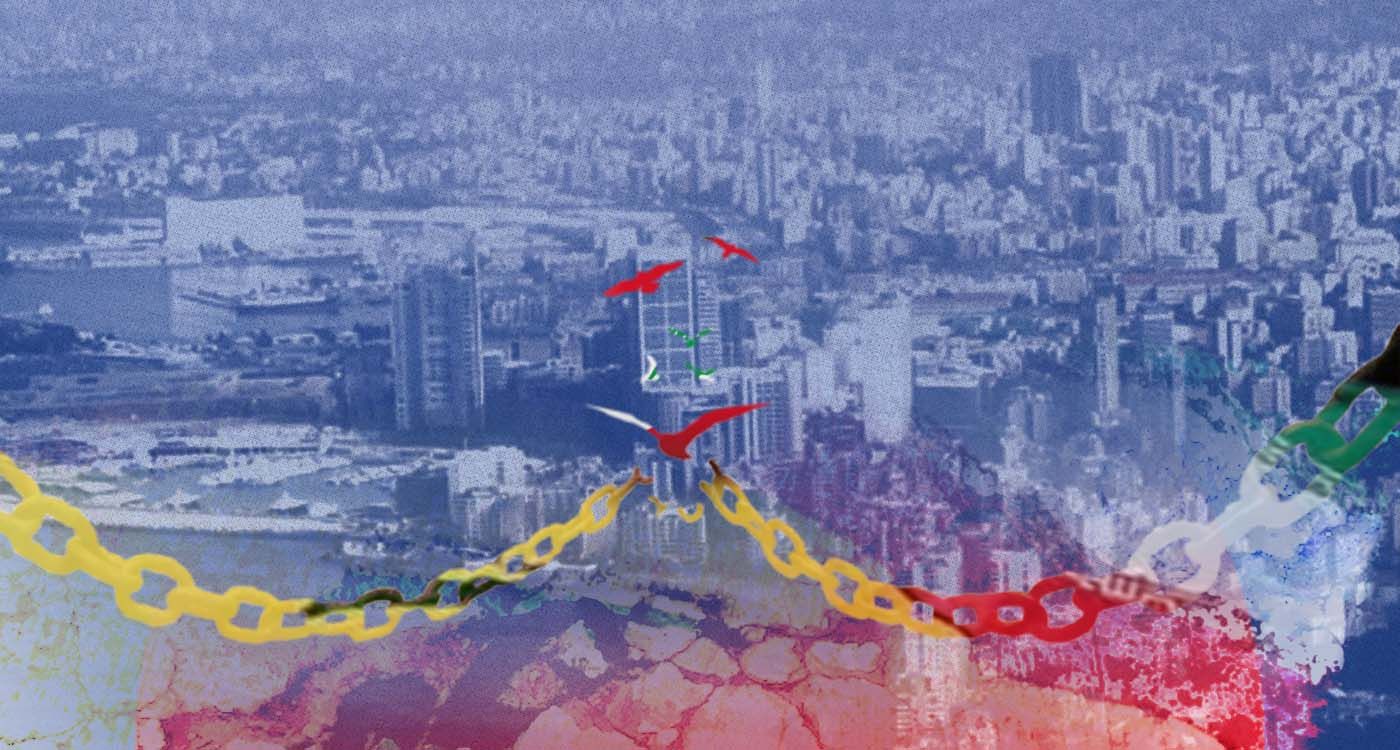
Lebanon’s pursuit of its national interests is obstructed by a complex array of domestic and regional actors, with Hezbollah at the forefront, alongside some Arab capitals and the “Palestinian issue.” Lebanon must snap out of its shyness and stand up for its national interests, making it clear that it has bigger fish to fry than the Palestinian problem and that its solidarity with fellow Arab governments has come at unaffordable cost.
The problem started in 1969 with the signing of the Cairo Agreement, which marked a pivotal surrender of Lebanese sovereignty, granting the Palestine Liberation Organization (PLO) the right to launch attacks against Israel from Lebanese territory. This decision, driven by intense external pressures, set a damaging precedent for Lebanon’s sovereignty and stability that persists to this day.
Israel’s reprisals were not the only challenge Lebanon faced. Armed Palestinian militias operated unchecked, not only targeting Israel but also terrorizing Lebanese citizens, extorting local businesses, and eroding the authority of the Lebanese government.
In 1969, Lebanon succumbed to Arab pressure and the so-called “Arab street” sentiment, failing to resist the Cairo Agreement. Beirut should have insisted that Arab states advocating for Palestinian liberation host the militias themselves and bear the consequences of their actions. Instead, Lebanon acquiesced, allowing its territory to become a battleground for a cause not its own.
In 2025, Lebanon remains reluctant to assert its national interests boldly. While it may offer moral support and limited material aid to Palestinians, Lebanon must not sacrifice its sovereignty for the cause of Palestinian sovereignty. Fifty-six years after the Cairo Agreement, Lebanon still hesitates to declare unequivocally: Israel is not its problem—Hezbollah is.
Earlier this month, Lebanese President Joseph Aoun attended a joint summit of the Arab League and the Organization of Islamic Cooperation (OIC) in Doha, convened to condemn Israel’s strike on a Hamas safe house in Qatar. The attack, which killed some operatives but missed senior targets, was decried as a violation of Qatari sovereignty, sparking global outrage. Yet, for over half a century, the systematic undermining of Lebanese sovereignty by Hezbollah and Palestinian militias has never prompted a single Arab League or OIC summit to address this ongoing crisis.
Qatar’s Emir, Sheikh Tamim bin Hamad Al Thani, not only expected Lebanon to prioritize Qatar’s sovereignty over its own but also openly defended Hezbollah. He argued that expecting the Lebanese Armed Forces (LAF) to disarm the pro-Iran militia risks igniting a civil war, a stance that dismisses Lebanon’s right to restore its authority. Thus, Aoun was compelled to endure lectures on why Lebanon should not reclaim its sovereignty while Qatar’s concerns took precedence, highlighting the double standards in regional politics.
This same hesitancy shapes Lebanon’s approach to Hezbollah. Successive governments have accepted Hezbollah’s flawed argument that disarming the militia requires national consensus. Since the Shia community opposes disarmament, Hezbollah claims the state’s monopoly on arms violates the “national convention.” In reality, Hezbollah’s armament lacks any legitimate consensus and violates Lebanon’s constitution, the Taef Agreement, and multiple UN Security Council resolutions. Its very existence undermines the “national convention” it claims to uphold, perpetuating a state within a state.
Yet neither President Aoun nor Prime Minister Nawaf Salam directly challenges Hezbollah by name. Instead, they speak vaguely of the state monopolizing arms, avoiding explicit mention of the militia. They denounce Israel to appear patriotic and comply with the directives of wealthy Gulf states, desperately seeking Arab and Islamic approval. This timidity reflects a broader failure to prioritize Lebanon’s national interests over external pressures and financial incentives.
No nation places the interests of a single faction, like Hezbollah, above its collective good. No state prioritizes the sentiments of the “Arab street,” amplified by Qatar’s Al Jazeera, over its sovereignty. Nor does any country defer to foreign capitals simply because they offer financial aid for reconstruction. Lebanon must break free from these external influences and chart its own course.
To reclaim its sovereignty, Lebanon should distance itself from the Palestinian cause and consider withdrawing from the Arab League and OIC. Its policy must be “Lebanon first—and last.” Other nations, including the Palestinians for 77 years, Syria, Egypt, Jordan, and the Gulf states, have unapologetically pursued their own interests. Lebanon must adopt a similar resolve, placing its national priorities above regional solidarity.
Until Lebanon’s leadership ceases seeking external validation and boldly asserts its interests, the nation will remain trapped in the misery it has endured for decades. Lebanon must shed its reluctance, reject foreign dictates, and forge a path to restore the respect, stability, and sovereignty its people deserve.




Comments